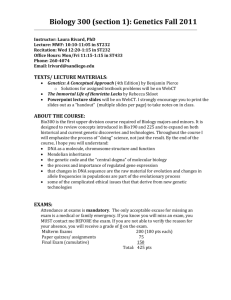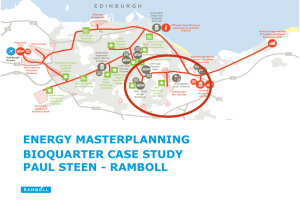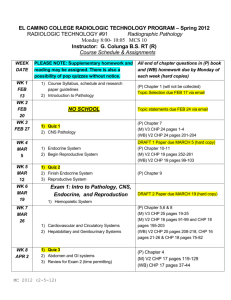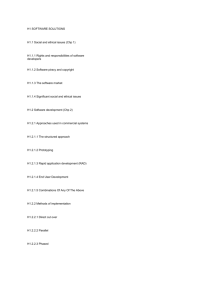Syllabus
advertisement
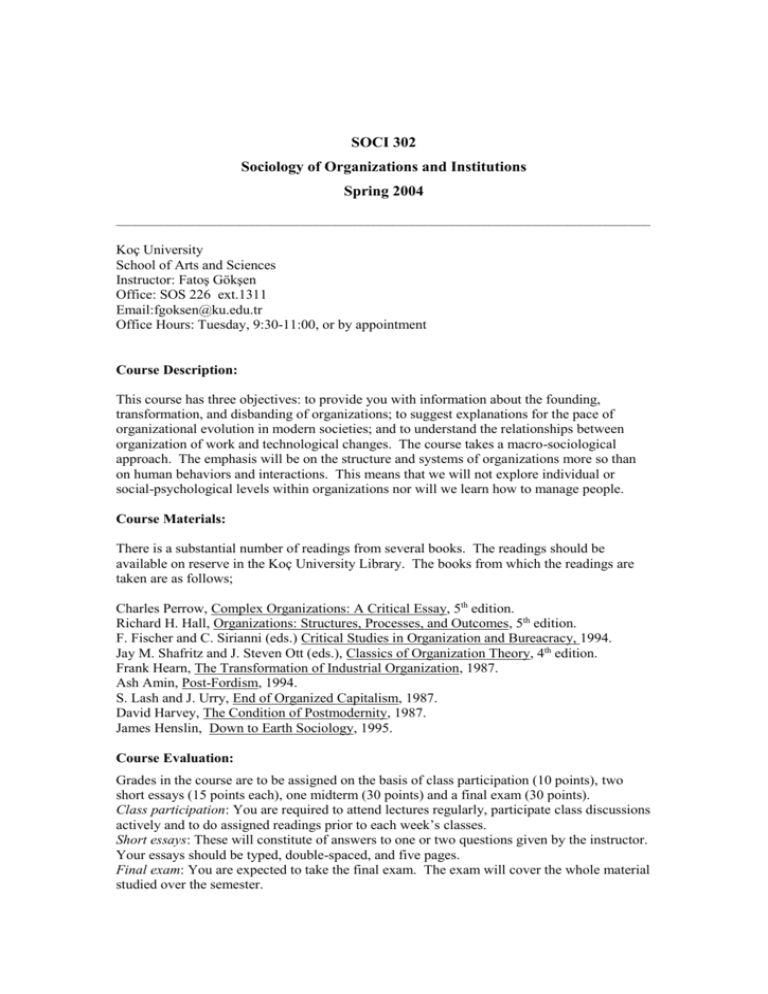
SOCI 302 Sociology of Organizations and Institutions Spring 2004 ___________________________________________________________________________________ Koç University School of Arts and Sciences Instructor: Fatoş Gökşen Office: SOS 226 ext.1311 Email:fgoksen@ku.edu.tr Office Hours: Tuesday, 9:30-11:00, or by appointment Course Description: This course has three objectives: to provide you with information about the founding, transformation, and disbanding of organizations; to suggest explanations for the pace of organizational evolution in modern societies; and to understand the relationships between organization of work and technological changes. The course takes a macro-sociological approach. The emphasis will be on the structure and systems of organizations more so than on human behaviors and interactions. This means that we will not explore individual or social-psychological levels within organizations nor will we learn how to manage people. Course Materials: There is a substantial number of readings from several books. The readings should be available on reserve in the Koç University Library. The books from which the readings are taken are as follows; Charles Perrow, Complex Organizations: A Critical Essay, 5th edition. Richard H. Hall, Organizations: Structures, Processes, and Outcomes, 5th edition. F. Fischer and C. Sirianni (eds.) Critical Studies in Organization and Bureacracy, 1994. Jay M. Shafritz and J. Steven Ott (eds.), Classics of Organization Theory, 4th edition. Frank Hearn, The Transformation of Industrial Organization, 1987. Ash Amin, Post-Fordism, 1994. S. Lash and J. Urry, End of Organized Capitalism, 1987. David Harvey, The Condition of Postmodernity, 1987. James Henslin, Down to Earth Sociology, 1995. Course Evaluation: Grades in the course are to be assigned on the basis of class participation (10 points), two short essays (15 points each), one midterm (30 points) and a final exam (30 points). Class participation: You are required to attend lectures regularly, participate class discussions actively and to do assigned readings prior to each week’s classes. Short essays: These will constitute of answers to one or two questions given by the instructor. Your essays should be typed, double-spaced, and five pages. Final exam: You are expected to take the final exam. The exam will cover the whole material studied over the semester. Course Outline WEEK 1 INTRODUCTION “Why study organizations?” Hall, chp.1 “Concept of formal organization” Shafritz, chp.19 “Nature and types of organizations” Hall, chp.2 WEEK 2 CLASSIC ORGANIZATION THEORY “Bureaucracy”, Weber. In Fischer and Sirianni, chp.1 “The spirit of bureaucracy and beyond bureaucracy”, Marx. In Fischer and Sirianni, chp.2. WEEK 3 “Oligarchy”, Robert Michels. In Fischer and Sirianni, chp.3. “Three patterns of bureaucracy” Alvin Gouldner. In Fischer and Sirianni. INDUSTRIAL ORGANIZATION WEEK 4 “From manufacture to modern society”. K.Marx. In Andre Gorz. “The Foreman’s Empire” Daniel Nelson. In F. Hearn. 1st short paper due March 18, Thursday WEEK 5 “Scientific management”, Frederick Taylor. In Fischer and Sirianni, chp.4 “The real meaning of Taylorism”, Braverman. In Fischer and Sirianni, chp.5. WEEK 6-7 “Forms of control in the labor process: An historical analysis”, R. Edwards. In Fischer and Sirianni, chp.8 “Hanging Tongues” William Thompson. In J. Henslin “McDonald’s” Barbara Garson. In J. Henslin ___________________________________________________________________________ WEEK 8 HUMAN RELATIONS SCHOOL “The human relations model” Perrow, chp.3. “Human relations and the informal organization”, Roethlisberger and Dickson. In Fischer and Sirianni, chp.6 WEEK 9 MANAGERIAL CAPITALISM “Origins of assembly line and capitalist control of work at Ford” David Gartman in A Zimbalist (ed.) Case Studies in the Labor Process. “Fordism” David Harvey _______________________________________________________________________ Midterm, April, 15, Thursday WEEK 10 “Managerial capitalism and economic crisis”, Bluestone and Harrison. In Hearn. “From Fordism to Flexible Accumulation” David Harvey WEEK 11-12 “A new paradigm of work organization and technology”, J. Tomaney. In Amin. “Puzzling out the Post-Fordist debate” Mark Elam. In Amin. WEEK 13 “Post-Fordism and democracy” Alain Lipietz. In Amin. “End of organized capitalism”, Lash and Urry 2nd short paper due May 18, Tuesday WEEK 14 CURRENT TRENDS IN ORGANIZATIONAL ANALYSIS “Women and power in organizations”, Kanter. In Fischer and Sirianni “Gendering organizational theory”, J. Acker. In Shafritz and Ott. “Sexuality and difference: on whose terms?” C. Cockburn, In the Way Home Please be sure that you are familiar with the University Academic Regulations and the Regulations for Student Disciplinary Matters. Policies related to excused absences, cheating, plagiarism, withdrawal, and incompletes can be found in these documents. As students and faculty in the Koc University, we are all responsible for adhering to these policies. And finally, I value your comments regarding the development of the course. If you are particularly pleased or dissatisfied with some aspect of this class, I encourage you to speak with me. My performance as your teacher will only improve when I am provided with timely feedback.




